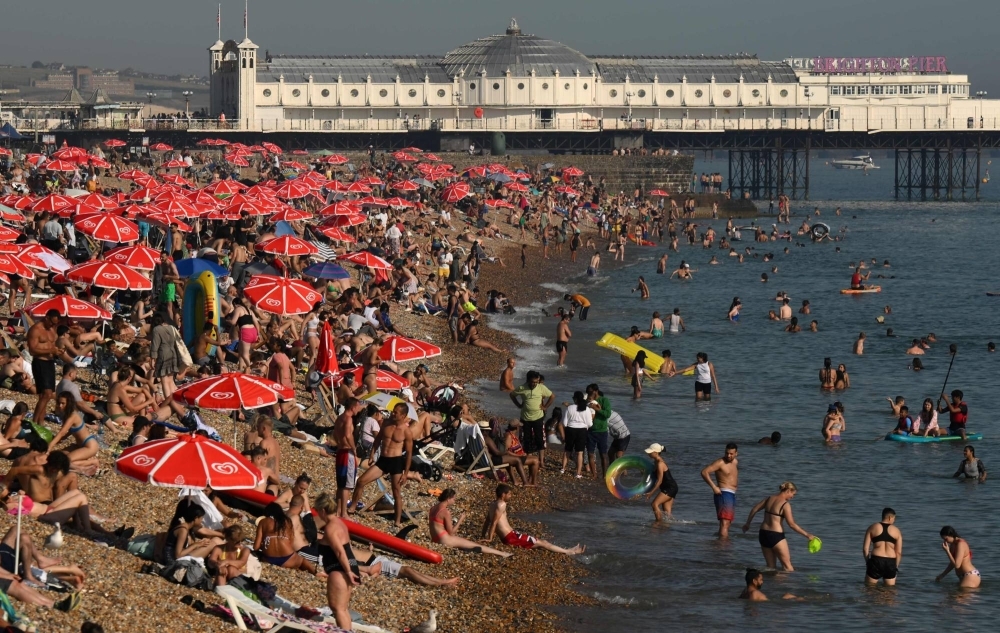This summer was likely humanity’s hottest yet, with record-breaking heat in June, July, and August. Globally, those high temperatures were made far more likely by climate change, according to a new analysis from the nonprofit Climate Central, part of a growing body of attribution science that seeks to analyze if or how climate change is making extreme weather worse.
"One of the things that I think really emerges this summer is that nobody is safe from climate change,” said Andrew Pershing, VP for science at Climate Central, which uses statistical models to rapidly assess the link between weather and climate.
To help with that process, the nonprofit developed a tool called the Climate Shift Index (CSI) to characterize the frequency of temperatures at a given location in our current climate of roughly 1.2 degrees Celsius of warming compared to the preindustrial era. CSI level 0 means a day was just as likely to happen today as in a world without manmade global warming. A CSI level of 1 means "we’re starting to detect climate change,” Pershing said. The higher the number, the greater the climate’s influence.
The nonprofit’s most recent analysis found that nearly half of the global population — over 3.8 billion people — experienced at least 30 days this summer of hot temperatures made at least three times more likely due to climate change (CSI level 3). At least 1.5 billion people were subject to "a very strong influence of climate change” every single day between June and August, the study noted. Globally, climate-linked heat exposure peaked on Aug. 16, impacting a staggering 4.2 billion people that day.
Climate change’s impact on heat was extensive, but not evenly distributed. Regions in which the CSI hit level 3 or higher this summer include large swaths of Central America and the Caribbean, northern parts of South America, much of Africa, and the Arabian Peninsula, according to Pershing. "A big part of what we’re trying to do with this analysis is to really come up with ways to try to localize that experience that individuals are having with climate change,” he said at a news conference. Earlier this week, Climate Central also calculated that a heat wave in Britain this summer was made five times more likely due to climate change.
All this extreme heat is making people sick and killing them. In Arizona’s Maricopa County, home to the city of Phoenix, there have been 194 confirmed heat-associated deaths this year and another 351 deaths are under investigation. Intense heat waves across the globe killed people from India to Japan, as marine heat waves imperiled ocean life. In the Atlantic, exceptionally hot waters have caused mass coral bleaching and some deaths in the Florida Keys coral reefs.
Scientists warn that the world will only see more summers like this one as long as people keep pumping greenhouse gases into the atmosphere. "The scientific evidence is overwhelming — we will continue to see more climate records and more intense and frequent extreme weather events impacting society and ecosystems, until we stop emitting greenhouse gases,” said Samantha Burgess, deputy director of the Copernicus Climate Change Service, in a recent statement.




